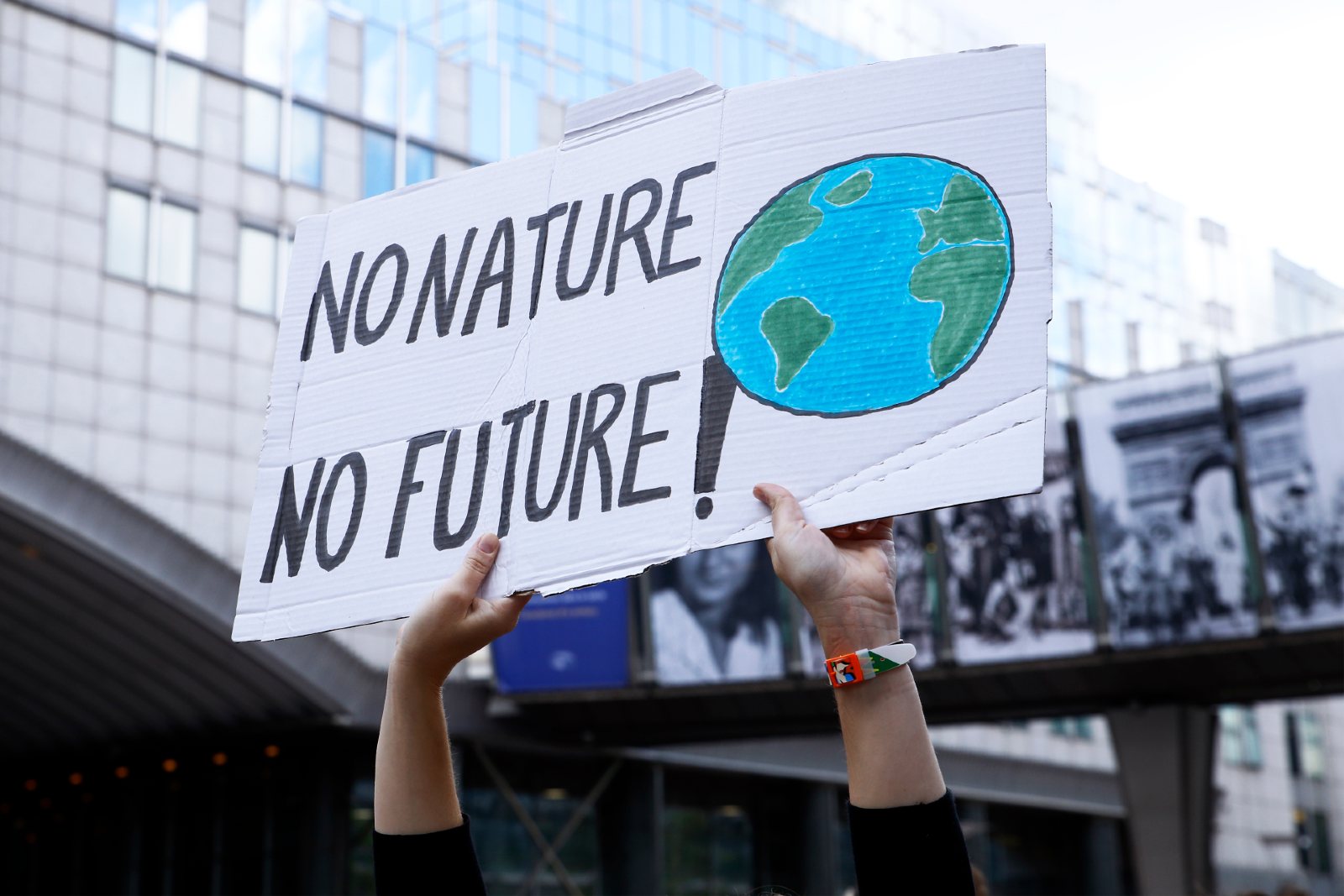
“It’s now or never”: Scientists call for action on “irreversible” climate change

The planet is at a crossroads: Act now or face climate catastrophe. That was the message (pdf) offered by the UN’s Intergovernmental Panel on Climate Change (IPCC) when it delivered the final installment of a landmark series of reports earlier this month.
The key takeaway: It is still possible for us to limit global warming to 1.5°C but only if the planet cuts emissions by 43% by 2030. This will require “immediate and deep” emission reductions, without which achieving the Paris climate targets will be impossible. Jim Skea, a professor at Imperial College London and co-chair of the working group behind the report, summed it up in four words: “It’s now or never.”
The publication of the report brings to an end the IPCC’s sixth assessment cycle, which started last year with an analysis of the physical scientific basis for climate change, a report referred to at the time as “code red for humanity” by UN chief Antonio Guterres. In a new, two-part series, Going Green looks at the final two reports of the cycle released over the past two months, which examine the impact of rising temperatures and assess what can be done to avert a climate catastrophe.
We’ll be focusing on Egypt and Africa, which stand to be among the areas of the world hardest-hit by climate change yet receive only a small amount of global climate funding.
“An atlas of human suffering and a damning indictment of failed climate leadership”: This is how Guterres described the second report on its launch, saying that its contents were unlike anything he’d seen before. In what was termed “the bleakest warning yet” by some scientists, the second report released in February warns of “irreversible” environmental damage if temperatures are allowed to exceed 1.5 °C. Increasingly extreme weather is causing “widespread, pervasive impacts” to ecosystems across the world, some of which are already beyond repair, the report says.
The magnitude? The report says that 3.3 bn people are “highly vulnerable” to climate change. Even more worrying: the impact of climate change has been “larger than estimated in previous assessments,” the report says.
The effects of global warming are already unequal: Over the previous decade, human mortality from extreme weather events was 15x higher in vulnerable regions like Africa, Asia and Central and South America, compared to less vulnerable parts of the world.
We’re looking at a lot more flooding at home if nothing changes: High-frequency flooding is expected to almost quadruple in North Africa by the end of the decade. Nowhere is this going to be felt more than in Egypt, which the IPCC names among the 20 countries that will face the most flood-related damage. Alexandria can expect to suffer the greatest damage, with the report estimating that flooding will cause USD 36-50 bn in damage in the coastal city by 2050, depending on when global emissions start to decline.
Africa will be one of the regions worst hit by rising sea levels: By the end of the decade some 108-116 mn people in Africa will be impacted by rising sea levels, a figure that is expected to reach 190–245 mn by 2060, according to IPCC estimates. Compare that to two decades ago when the number was just 54 mn. Egypt, Mozambique and Nigeria are expected to see the largest number of people affected by rising sea levels should temperatures rise by 4°C.
Heat waves will become a much bigger problem as temperatures rise and populations explode: The number of at-risk people — defined as people under the age of 5 and over 64 — exposed to heat waves in Africa will surge from 27 mn in 2010 to 360 mn (in a 1.8°C warming scenario) or 440 mn (4.2°C) by the end of the century.
The impact on African ecosystems will be devastating: With every 0.5°C increase above current levels of warming (which is now about 1.1°C above pre-industrial levels) will come “widespread loss” of biodiversity, the IPCC says. Once we’ve surpassed the 1.5°C mark, half of the animal species monitored by the IPCC on the continent are projected to lose over 30% of their population. At 2°C we’re looking at 7–18% of all animal species threatened by extinction, and over 90% of East African coral reefs — which are critical to Egypt’s biodiversity and tourism — “severely degraded by bleaching,” the report says.
Continued warming will put further pressure on food supplies, which have already long been in decline in Africa. Climate change has caused agricultural productivity to fall 34% since the early 1960s, the worst of any region around the world. Egyptian farmers can expect to see their olive yields continue to fall should temperatures rise to 1.5°C, and warming above 2°C will have a more drastic impact on the continent’s food systems. In this scenario, the IPCC forecasts smaller crops of staple foods “across most of Africa” and fish catch potential — the main source of protein for almost a third of people on the continent — falling by up to 69% by the end of the century.
The continent’s economic future will also hinge on how far temperatures rise: GDP per capita is projected to be at least 5% higher by 2050 and 10–20% higher by 2100 if global warming is kept at 1.5°C, compared to a 2°C warming scenario.
Adaptation strategies are essential going forward — but this costs money: The report estimates that it would cost USD 50 bn per year to implement adaptation strategies in Africa to help cope with 1.5°C of warming in 2050. That figure would go up to USD 100–350 bn per year at 4°C of global warming towards the end of the century, the IPCC suggests.
And so far money has not been forthcoming for Africa: There is currently a shortfall amounting to bns of USD in funding necessary to help African countries build resilience to climate change. And less than 4% of funding allocated to climate research around the world has gone to Africa-related studies. “Finance has not targeted more vulnerable countries and communities,” the report says, without offering an explanation.
BUT- There’s still a chance to make things right: While hitting 1.5°C of warming is expected to “cause unavoidable increases in multiple climate hazards and present multiple risks to ecosystems and humans,” actions taken to reel in warming below that marker can “substantially reduce projected losses and damages,” the report says. From our current vantage point, deeper emission cuts might appear to be a pipe dream, but the IPCC maintains that it is still achievable.
In Part II: Next week, we look at the third and final report in the series, where the IPCC describes in detail what we’re going to have to do if we’re to cap global warming at 1.5°C.
Your top climate stories for the week:
- We sat down with Mari Pangestu, the World Bank's managing director of development policy and partnerships, who was in Egypt earlier this month. She shared what the bank is doing to support Egypt as it prepares for COP27, the importance of climate adaptation for countries like Egypt and other key climate issues.
- Solar energy integrator Solarsol plans to establish an EUR 5 mn industrial facility at the Suez Canal Zone. The project will include three factories that will manufacture solar-powered products, and is slated to open in 1Q 2023.
- Alternative fuels may soon need to account for at least 15% of cement factories’ energy consumption under a proposal being studied by the Environment Ministry, Waste Management Regulatory Authority Deputy Head Yasser Mahgoub told Enterprise.
- Green ammonia and hydrogen were on the table in discussions between the Electricity Ministry, EDF Renewables and local firm ZeroWaste.
Enterprise is a daily publication of Enterprise Ventures LLC, an Egyptian limited liability company (commercial register 83594), and a subsidiary of Inktank Communications. Summaries are intended for guidance only and are provided on an as-is basis; kindly refer to the source article in its original language prior to undertaking any action. Neither Enterprise Ventures nor its staff assume any responsibility or liability for the accuracy of the information contained in this publication, whether in the form of summaries or analysis. © 2022 Enterprise Ventures LLC.
Enterprise is available without charge thanks to the generous support of HSBC Egypt (tax ID: 204-901-715), the leading corporate and retail lender in Egypt; EFG Hermes (tax ID: 200-178-385), the leading financial services corporation in frontier emerging markets; SODIC (tax ID: 212-168-002), a leading Egyptian real estate developer; SomaBay (tax ID: 204-903-300), our Red Sea holiday partner; Infinity (tax ID: 474-939-359), the ultimate way to power cities, industries, and homes directly from nature right here in Egypt; CIRA (tax ID: 200-069-608), the leading providers of K-12 and higher level education in Egypt; Orascom Construction (tax ID: 229-988-806), the leading construction and engineering company building infrastructure in Egypt and abroad; Moharram & Partners (tax ID: 616-112-459), the leading public policy and government affairs partner; Palm Hills Developments (tax ID: 432-737-014), a leading developer of commercial and residential properties; Mashreq (tax ID: 204-898-862), the MENA region’s leading homegrown personal and digital bank; Industrial Development Group (IDG) (tax ID:266-965-253), the leading builder of industrial parks in Egypt; Hassan Allam Properties (tax ID: 553-096-567), one of Egypt’s most prominent and leading builders; and Saleh, Barsoum & Abdel Aziz (tax ID: 220-002-827), the leading audit, tax and accounting firm in Egypt.